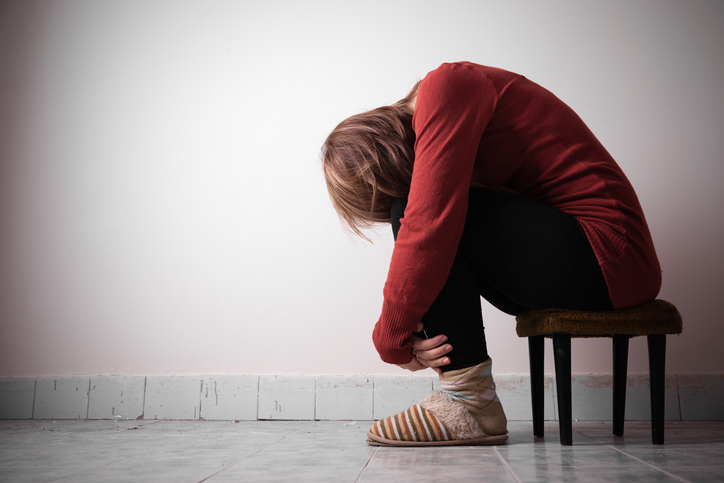Addiction is a widespread problem that affects many Canadians and their families. In fact, approximately 20 per cent of the population—or one in every five Canadians—will struggle with addiction or mental health (Centre for Addiction and Mental Health, 2017). The process of addiction can happen slowly or suddenly, and can have a huge impact on a client’s life as well as the lives of their loved ones. To help these individuals heal and overcome the grips of addiction, addictions counsellors and wellness professionals can provide much-needed support and guidance.
If you’re interested in a rewarding career as an addictions counsellor, read on to learn about the five stages of addiction.
Experimentation: The First Stage of Addiction
Many people will experiment with drugs, alcohol, or gambling, and often this experimentation is relatively harmless and won’t lead to addictive behaviour (Intervention Support, 2016). In fact, the Canadian Centre on Substance Abuse claims that 70 per cent of Canadian youth have experimented with drinking alcohol (Canadian Centre on Substance Abuse, 2014).
For select individuals, the experimentation phase can be a gateway to unhealthy habits. Individuals who are genetically predisposed to addiction and those who are under physical or psychological stress are more likely to be vulnerable to addiction during the experimentation phase (National Institute on Drug Abuse, 2017). As a result, they may progress to the regular use phase of addiction.
Students in Addictions Counselling Training Know that Regular Use Is the Second Stage
The next phase of addiction is regular use. Individuals in the regular use phase may begin to use drugs or alcohol in their daily lives, or gambling becomes a regular activity (Rehabs.com, 2017).
An individual is not addicted during the regular use phase. However, some may adjust their schedule to accommodate their addictive behaviour. Examples of this could be consuming a prescription pain pill whenever an old injury becomes painful again, or drinking several glasses of wine at most meals.
Risk-Taking: The Third Stage of Addiction
As individuals grow more comfortable with their substance use or pre-addictive behaviour, they may begin taking risks. This is the stage where addictive behaviour becomes problematic. Family members and close friends may start noticing a problem.
During the risk-taking phase, individuals start taking actions that could be physically harmful or dangerous (Rehabs.com, 2017). This is the result of the addiction advancing. Some examples of risky behaviour are driving while impaired, having unprotected sex while under the influence, or neglecting self-care.
Dependence Is the Fourth Stage
After abusing a substance or exhibiting abusive behaviours for a while, the chemical composition of the brain and the way it functions starts to change. This is when a client is passing from the risk-taking to the dependence phase. At this point, the individual needs higher doses of the drug or alcohol to get the same “high”, and individuals with a sex or gambling addiction will need more gratification to get the same rewarding feeling (Rehabs.com, 2017).
The dependence stage is a major turning point, because at this stage the individual will likely require the help of an expert with a professional counselling diploma to recover from their dependence. (Rehabs.com, 2017)
Addiction: Students in Addictions Counselling Training Know this Is the Fifth and Final Stage
The final phase in the addiction process is the stage of full-fledged addiction, where the client no longer has control over their addiction and acts compulsively (Rehabs.com, 2017). The client’s body has altered its chemistry in order to accommodate the substance, so if the individual stops taking the substance they will experience severe withdrawal symptoms. Individuals with addictions to sex and gambling will also experience serious psychological distress if they don’t get their “fix” (Intervention Support, 2016). This stage can be especially distressing for the client and their loved ones.

Addictions counsellors help individuals suffering from addictions find happiness and health
Addiction is a disease just like any other. Therefore, talented, trained, and passionate addictions counsellors can help individuals struggling with addiction recover and regain control of their lives.
Are you considering enrolling in addictions counsellor courses in Vancouver?
Contact Rhodes Wellness College today to get started towards a rewarding career!
Bibliography
Canadian Centre on Substance Abuse. (2014). Youth and Alcohol . Retrieved from http://www.ccsa.ca/Resource%20Library/CCSA-Youth-and-Alcohol-Summary-2014-en.pdf
Centre for Addiction and Mental Health. (2017). Mental Illness and Addictions: Facts and Statistics. Retrieved from http://www.camh.ca/en/hospital/about_camh/newsroom/for_reporters/Pages/addictionmentalhealthstatistics.aspx
Intervention Support. (2016, August 23). The Stages of Addiction. Retrieved from http://www.interventionsupport.com/blog/the-stages-of-addiction/
National Institute on Drug Abuse. (2017). Addiction Risk Factors. Retrieved from https://easyread.drugabuse.gov/content/addiction-risk-factors
Rehabs.com. (2017). Stages of Addiction. Retrieved from http://luxury.rehabs.com/drug-addiction/stages/










